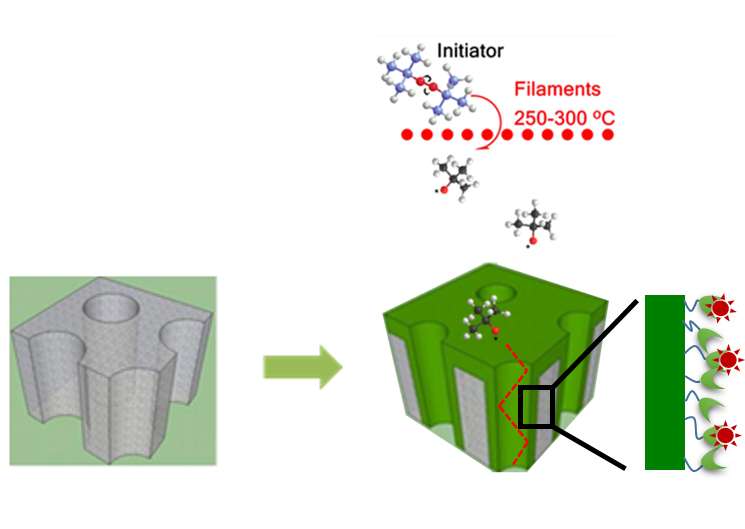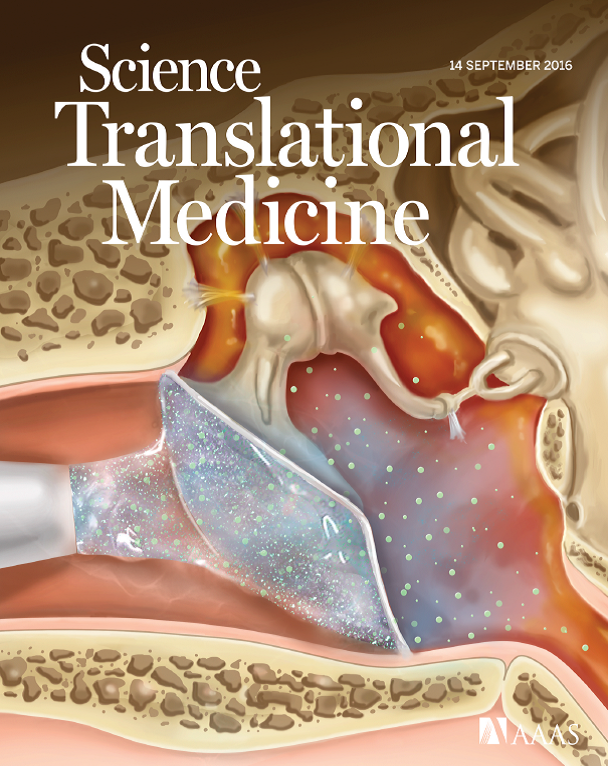Bacteria-Surface Interactions on the Molecular Scale

Bacteria often attach to surfaces and form communities called biofilms. Biofilms are so ubiquitous that they constitute one of the major forms of biomass on Earth. The ability to control the interaction between bacteria and surfaces would have a range of applications, including in health (e.g., microbiome engineering), industry (e.g., alleviating freshwater scarcity), and environmental preservation (e.g., protecting vulnerable ecosystems from pathogenic invasion). We use polymer vapor deposition techniques to create surfaces that allow the manipulation of bacteria-surface interactions via nanometer-scale heterogeneities.
Redesign Porous Membranes in Healthcare and Sustainability
Membrane separation is indispensable for today’s health care and sustainability, with applications ranging from hemodialysis/hemofiltration to water purification and energy storage. Low throughput, poor selectivity, and fouling are pervasive issues with virtually all membrane separation processes.
We capitalize on the conformal nature of the vapor-deposited polymers to achieve uniform coverage inside porous membranes, thereby controlling liquid-solid interface interactions and overcoming the aforementioned limitations.

Material-Based Solutions to Antibiotic Resistance

Antibiotic resistance is a leading and growing cause of death worldwide, undermining not only our ability to fight infectious diseases, but also the success of surgery, dialysis, and cancer chemotherapy. We develop material-based antibiotic treatments that disinfect by converting secreted metabolic products of pathogens to antimicrobials in situ.